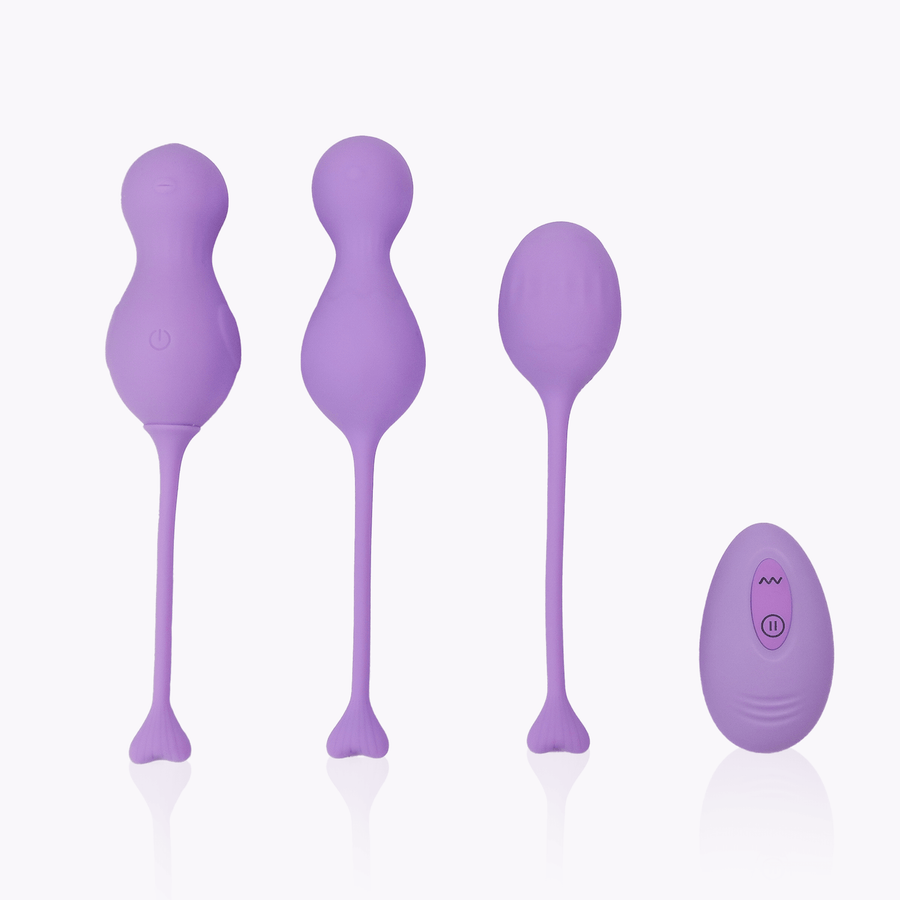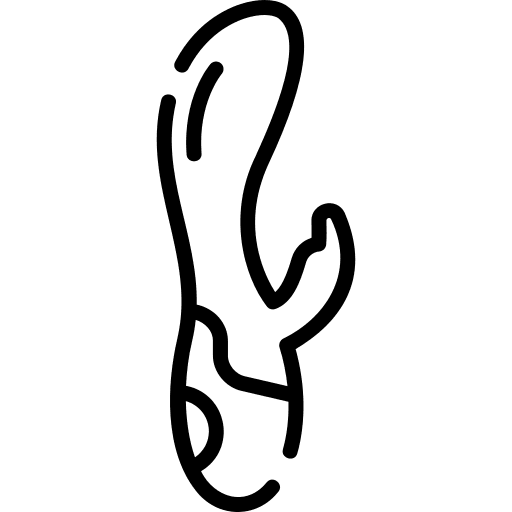Libido and Sexual Desire: How to Increase It Naturally?
The Importance of Libido and the Nature of Sexual Desire
Libido is of great importance in terms of sexual health and happiness. Libido is the internal drive that forms the basis of sexual desire. Sexual desire reflects an individual's interest and desire for sexual activities. While this natural instinct forms the basis of a healthy sexual life, various factors can affect the level of libido.The nature of sexual desire varies from person to person and may change at different periods of life. Libido is shaped as a result of the complex interaction of physiological, psychological and social factors. Stress, lifestyle, hormonal changes, relationship status and health status are among the factors that affect sexual desire.
A healthy level of sexual desire improves a person's quality of life, contributes to strengthening the bond with the partner and increasing sexual harmony. Low libido can cause sexual dissatisfaction between couples and weaken the emotional bond in the relationship. Therefore, it is important to approach it with natural methods that positively affect sexual desire.
The Effect of Healthy Nutrition on Libido

One of the cornerstones of a healthy sexual life is healthy nutrition. Foods play an important role in the body's regulation of hormonal balance and sexual functions. Consuming the right foods can increase sexual desire by positively affecting libido.
Foods Containing Protein: Meat, fish, eggs, dairy products and legumes are sources of protein. Proteins play an important role in the production of sexual hormones and their circulation in the body. Regular protein intake helps keep libido at a healthy level.
Zinc Rich Foods: Zinc rich foods such as seafood, pumpkin seeds, cashews and chicken meat are important for the production of sexual hormones. Zinc supports sexual functions by increasing sperm quality and motility.
Foods Rich in Magnesium: Foods rich in magnesium, such as spinach, almonds, bananas and avocados, have a positive effect on muscle functions and the circulatory system. Magnesium supports sexual arousal by increasing blood flow in the body.
Omega-3 Fatty Acids: Foods containing omega-3 fatty acids, such as salmon, flaxseeds and walnuts, support sexual desire by increasing blood flow. Additionally, omega-3 fatty acids help regulate libido by reducing stress.
Antioxidants: Antioxidants found in colorful fruits and vegetables protect sexual health by fighting free radicals. ( Free Radicals: are reactive chemical compounds and molecules that can damage cells in the body and cause DNA damage. ) These foods, containing vitamin C and vitamin E, support the health of the tissues in the sexual organs.
Remember, healthy eating not only increases sexual desire but also improves overall health. A balanced and varied diet is the key to a happy sexual life by positively affecting libido.
The Relationship between Exercise and Libido: Benefits of Regular Movement

To understand the effect of exercise on libido, it is necessary to look at the physiological changes occurring in the body. Exercise increases blood circulation, allowing more blood flow to the genital area. This increases stimulation in the sexual organs and revitalizes sexual desire. Additionally, exercise reduces stress and triggers the release of endorphins in the body. Endorphins support the feeling of happiness and well-being and have an effect that increases sexual desire.
Regular exercise can improve sexual performance and strengthen sexual self-confidence. It also regulates the hormone balance in the body and increases the release of sexual hormones. This is an important factor that increases sexual desire.
Exercise type and duration may vary based on personal preferences and health status. Activities such as walking, running, yoga, dancing or aerobics can help increase libido. However, it is important to take a balanced approach, as excessive exercise can negatively impact sexual desire.
In addition to regular exercise to increase your sexual desire, it is also beneficial to eat healthy and pay attention to stress management. Remember, increasing libido naturally will enrich your sexual life and strengthen your emotional bond.
The Link Between Stress Management and Libido
In today's fast-paced life, stress is a common problem faced by many people. But stress not only affects our mental and emotional health, it can also negatively affect our sexual health. There is a strong connection between libido and stress, and during periods of high stress, sexual desire may decrease.The stress hormones cortisol and adrenaline can affect the release of sexual hormones in the body. High stress levels can cause a decrease in happiness hormones such as serotonin and dopamine in the body. This can lead to a decrease in libido and lack of sexual desire.
Stress can also negatively affect sexual performance. Feelings of worry and anxiety can negatively impact sexual experiences and weaken the connection with the partner. It has been observed that stress levels are high in people experiencing sexual problems.
Stress management plays an important role in increasing libido. To cope with stress, it may be useful to exercise regularly, do relaxation techniques such as meditation and deep breathing exercises, and yoga practice. Additionally, consumption of some foods with aphrodisiac effects that increase sexual desire can also help cope with stress.
It is important to strengthen communication to reduce the effects of stress, especially in your sexual life. Talking openly and understandingly with your partner can increase sexual desire and strengthen commitment to each other.
Remember, managing stress will positively impact your sexual health and relationship while helping to positively impact libido.
The Role of Sleep Quality on Sexual Desire

It is impossible to ignore the importance of sleep quality for a healthy sexual life. Sleep allows the body to rest and renew itself. At the same time, the effect of sleep quality on sexual desire and libido is also important.Insufficient or poor quality sleep can negatively affect sexual desire. Insomnia and irregular sleep patterns can cause an increase in stress hormones in the body. This can make it difficult to regulate sexual hormones and lower libido.
The positive effect of sleep on libido makes you feel rested and energetic. Sleep increases the release of happiness hormones such as serotonin and dopamine in the body. This stimulates sexual desire and makes the sexual experience more satisfying.
In order to understand the role of sleep quality on sexual desire, it is necessary to attach importance to regular and adequate sleep patterns. Getting enough sleep each night helps the body regulate sexual hormones and increases libido.
To improve sleep quality, it may be useful to set regular sleep hours, make the sleep environment comfortable and quiet, and apply relaxation techniques before sleep (e.g. meditation or a hot bath). Additionally, limiting caffeine and alcohol consumption will positively affect sleep quality.
Remember, sleep quality is an important factor in increasing sexual desire and libido. Taking care of regular and adequate sleep patterns for a healthy sexual life will positively affect your relationship and sexual life.
Natural Aphrodisiacs: Foods and Plants That Increase Sexual Desire
Harnessing the power of natural aphrodisiacs to increase sexual desire is a method that has been tried and tested by humans for thousands of years. Aphrodisiacs are foods and herbs that stimulate sexual urges and increase libido. These aphrodisiacs are an important resource for those who want to increase libido naturally.Chocolate: Chocolate increases the feeling of happiness and pleasure thanks to the phenylethylamine and serotonin it contains. It is known as an aphrodisiac due to its stimulating effect on sexual desire.
Banana: Banana increases energy with the potassium and vitamin B it contains. It also contains the enzyme bromelain, which helps regulate sexual hormones.
Avocado: Avocado is rich in folic acid, potassium and vitamin E. These nutrients increase energy and support libido.
Blueberries: Blueberries are rich in antioxidants and support sexual arousal by increasing blood flow.
Hazelnuts: Hazelnuts are rich in vitamin E and zinc. These nutrients increase the release of sexual hormones and strengthen sexual desire.
Ginseng: Ginseng is a plant that has been used for thousands of years due to its sexual performance enhancing effect. It supports sexual arousal by increasing blood circulation.
Maca root: Maca root is an herb that grows in Peru and is traditionally used to increase sexual desire. It helps regulate hormones and increase energy levels.
Shrimp: Among seafood, especially shrimp, is rich in zinc and supports the release of sexual hormones.
Ginger: Ginger increases blood flow and enhances sexual arousal. It also positively affects libido due to its stress-reducing effect.
Basil: Basil is known for its libido-boosting properties. It supports the circulatory system and stimulates sexual desire.
These natural aphrodisiacs are effective methods to increase sexual desire and strengthen libido. However, it is important to consult with a healthcare professional who specializes in sexual health issues before using natural aphrodisiacs. Since each individual's needs and health conditions are different, it will be safer and more effective to choose appropriate aphrodisiacs by consulting a specialist.
The Importance of Connection with the Partner: Strengthening the Emotional Bond
Emotional connection is as important as natural aphrodisiacs and physical factors in increasing sexual desire and libido. Establishing a strong emotional bond with a partner plays a critical role in improving the quality and satisfaction of sexual relationships. The emotional bond in the relationship is an important factor that stimulates sexual desire and supports passion.Emotional bond forms the basis of trust, intimacy and understanding between couples. The commitment of partners to each other positively affects their sexual lives. Couples who are emotionally connected enjoy sexual experiences more and are better attuned to each other.
Communication and understanding are important for a healthy sexual relationship. Partners hearing each other, understanding their needs, and expressing shared feelings strengthens the emotional bond. Couples who are emotionally close experience a feeling of closeness that increases sexual desire.
During stressful periods or conflicts, it is important to maintain and strengthen the emotional bond. Supporting each other, showing empathy, and openly expressing negative emotions can strengthen the emotional bond in the relationship.
It is also important to take time and spend quality time together to strengthen the emotional bond. Activities and memories made together deepen couples' bonds with each other.
Remember, emotional connection has great power in increasing sexual desire and libido. Establishing a healthy emotional bond with your partner and being open in communication can make your sexual relationships more satisfying and meaningful.
The Effect of Hormonal Balance on Sexual Desire
Hormonal balance plays a critical role in increasing sexual desire and libido naturally. While hormones regulate many functions in the body, they also affect sexual impulses. It is important to maintain and support hormonal balance for a healthy sexual life.In particular, hormones such as testosterone, estrogen and progesterone are the main hormones that affect sexual desire and libido. Testosterone is the main hormone that increases sex drive in both men and women. Hormonal balance requires these hormones to be at appropriate levels.
Aging, stress, poor eating habits and hormonal imbalances can negatively affect sexual desire. Healthy nutrition, regular exercise and stress management are important to maintain hormonal balance. Additionally, sleep quality also has a significant impact on hormonal balance.
Herbal supplements and natural foods can help support hormonal balance. Some herbal supplements contain ingredients that are particularly beneficial for sexual health. For example, maca root is known for its libido-enhancing effects and may help maintain hormonal balance.
To support hormonal balance, it is also important to have regular medical check-ups and have hormonal levels measured. Identifying and treating hormonal imbalances is an important step in increasing sexual desire.
Remember, hormonal balance has a great impact on sexual desire and it is important to maintain and support hormonal balance for a healthy sexual life.
Relaxation and Meditation: Increasing Libido by Calming the Mind
Among the natural ways to increase sexual desire and libido, the power of relaxation and meditation is a very effective method. Today's stressful and busy life can negatively affect sexual desire. However, calming the mind through regular relaxation and meditation practices can stimulate sexual desire.
Stress causes the release of a hormone called cortisol in the body. High cortisol levels can reduce sex drive and negatively affect libido. Meditation and relaxation techniques help reduce the effects of stress by lowering cortisol levels.
Meditation is a method that calms the mind and increases focus. Regular meditation reduces stress, clears the mind and helps maintain emotional balance. Thus, it may have an increasing effect on sexual desire.
Relaxation techniques can also be effective in increasing libido. The relaxing effect of yoga can increase sexual desire and strengthen emotional bonding. Activities such as taking a hot bath, taking nature walks, and reading a book can also calm the mind and increase sexual desire.
It is important to practice relaxation and meditation regularly to increase sexual desire. Reducing stress and calming the mind by taking time for yourself can positively affect your sexual life.
Conclusion
Libido and sexual desire issues are an important part of our health and relationships. The main topics we cover in this article offer natural ways to increase sexual desire. A healthy diet supports sexual health by providing the nutrients the body needs. Regular exercise can improve sexual functions by increasing blood circulation. Stress management can have a positive impact on libido by promoting mental and physical relaxation. Sleep quality is an essential element of increasing sexual desire. Natural aphrodisiacs indicate that certain foods have special properties that can increase sexual desire. Emotional connection emphasizes that having an intimate relationship with your partner positively affects your sexual life. Hormonal balance is an important factor affecting sexual desire, and hormonal adjustments can improve sexual health. Relaxation and meditation are useful techniques to calm down mentally and relieve stress. In conclusion, there are many ways to increase sexual desire. Everyone is different, so it's important to choose the methods that best suit your needs. Remember that a healthy sexual life can make positive contributions to your overall health and relationship. A good sexual life is one of the cornerstones of a healthy and happy life. Therefore, you can open the doors to a more satisfying sexual life by trying these strategies and making time for yourself and your partner.
SOURCES AND REFERENCES
Basson, R., Leiblum, S., Brotto, L., Derogatis, L., Fourcroy, J., Fugl-Meyer, K., ... & van Lankveld, J. (2004). Definitions of women's sexual dysfunction reconsidered: advocating expansion and revision. Journal of Psychosomatic Obstetrics & Gynecology, 25(4), 289-296.
Brotto, L.A., & Basson, R. (2014). Group mindfulness-based therapy significantly improves sexual desire in women. Behavior Research and Therapy, 57, 43-54.
Jannini, E.A., Isidori, A.M., Aversa, A., Lenzi, A., & Maggi, M. (2016). Hormonal replacement therapy and sexual function in postmenopausal women. The Journal of Sexual Medicine, 13(4), 601-611.
Esposito, K., Giugliano, F., Di Palo, C., Giugliano, G., Marfella, R., & D'Andrea, F. (2004). Effect of lifestyle changes on erectile dysfunction in obese men: a randomized controlled trial. JAMA, 291(24), 2978-2984.
Balercia, G., Armeni, T., Mantero, F., & Boscaro, M. (2010). Sexual dysfunction in male patients with alcohol dependence. International Journal of Impotence Research, 22(2), 79-83.
Meldrum, D. R., Gambone, J. C., Morris, M. A., & Ignarro, L. J. (2011). A multifaceted approach to maximize erectile function and vascular health. Fertility and Sterility, 96(4), 931-937.
Blair, S.N., Cheng, Y., & Holder, J.S. (2001). Is physical activity or physical fitness more important in defining health benefits? Medicine and Science in Sports and Exercise, 33(6 Suppl), S379-S399.
Breda, E., Cavalcanti, G., & Ribeiro, Í. J. S. (2019). Role of physical exercise in the regulation of penile erection. International Journal of Impotence Research, 31(5), 313-317.
Travison, T. G., Araujo, AB, & McKinlay, J. B. (2007). The evolving pattern of symptomatology in diabetic and nondiabetic men: results from the Massachusetts Male Aging Study. Journal of Andrology, 28(6), 910-918.
Pfaus, J. G., Kippin, TE, Coria-Avila, GA, Gelez, H., Afonso, V. M., Ismail, N., & Parada, M. (2012). Who, what, where, when (and maybe even why)? How the experience of sexual reward connects sexual desire, preference, and performance. Archives of Sexual Behavior, 41(1), 31-62.
Brody, S. (2007). Blood pressure reactivity to stress is better for people who recently had penile-vaginal intercourse than for people who had other or no sexual activity. Biological Psychology, 75(2), 260-268.
Dugan, S.A., Warren, KA, & Conard, L.A. (2002). Stress, sexual functioning, and marital satisfaction. The Journal of Sex & Marital Therapy, 28(2), 129-142.
Zhang, B., Wing, Y. K., & Sex, M. (2019). Sleep and Sexual Medicine: The Bidirectional Relationship Issue. Journal of Sexual Medicine, 16(3), 341-343.
Krieger, C. A., Griefahn, B., & Hagen, K. (2019). Sleep and Sexual Desire in Men and Women across the Lifespan. Journal of Sexual Medicine, 16(3), 371-385.
Park, J., & Moon, D. G. (2015). The Relationship between Sleep and Sexual Function and its Impact on Quality of Life: An Epidemiological Study of a Nationally Representative Sample. Journal of Sexual Medicine, 12(4), 983-994.
Balon, R., Riera, C. E., & Rajapakse, J. C. (2013). Chocolate and the brain: Neurobiological impact of cocoa flavanols on cognition and behavior. Neuroscience & Biobehavioral Reviews, 37(10), 2445-2453.
Gonzales, G. F., Córdova, A., Vega, K., Chung, A., Villena, A., Góñez, C., & Castillo, S. (2003). Effect of Lepidium meyenii (Maca), a root with aphrodisiac and fertility-enhancing properties, on serum reproductive hormone levels in adult healthy men. Journal of Endocrinology, 176(1), 163-168.
Khan, A., & Safdar, M. (2003). A natural and novel sexual stimulant: Effects of Butea superba on sexual function in healthy and hemodialysis patients. Journal of Medical Association of Thailand, 86(3), 195-199.
Muise, A., Schimmack, U., & Impett, E. A. (2016). Sexual frequency predicts greater well-being, but more is not always better. Social Psychological and Personality Science, 7(4), 295-302.
Schoenfeld, EA, Loving, TJ, Pope, MT, & Huston, TL (2013). What women should know about men: Effects of partner physical attractiveness and socio-economic status on men's interest in infants. Evolutionary Psychology, 11(1), 147470491301100114.
Birnbaum, G. E., & Reis, H. T. (2016). Evoking Altruism: Subtle Increases in Relational Authenticity Induce Prosocial Behavior. Psychological Science, 27(3), 395-402.
Tan, R.S., & Vasudevan, D. (2021). Testosterone supplementation in men and women: Myths and misconceptions. Maturitas, 148, 89-96.
Wierman, M. E., & Basson, R. (2014). Is testosterone therapy for women safe and effective? Journal of Sexual Medicine, 11(6), 1274-1281.
Shin, B. C., Lee, MS, Yang, E. J., Lim, H. S., & Ernst, E. (2010). Maca (L. meyenii) for improving sexual function: a systematic review. BMC Complementary and Alternative Medicine, 10(1), 44.
Shree, SS, & Mishra, R. K. (2021). Effect of Meditation on Stress and Anxiety Levels: A Study. The International Journal of Indian Psychology, 9(2), 632-637.
Khattab, K., Khattab, AA, Ortak, J., Richardt, G., Bonnemeier, H., & Schmidinger, H. (2007). Iyengar yoga increases cardiac parasympathetic nervous modulation among healthy yoga practitioners. Evidence-Based Complementary and Alternative Medicine, 4(4), 511-517.
Ditto, B., Eclache, M., & Goldman, N. (2006). Short-term autonomic and cardiovascular effects of mindfulness body scan meditation. Annals of Behavioral Medicine, 32(3), 227-234.














Leave a comment